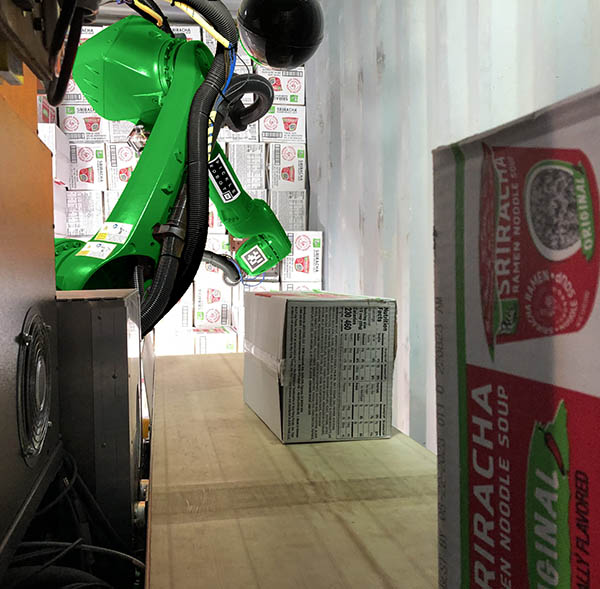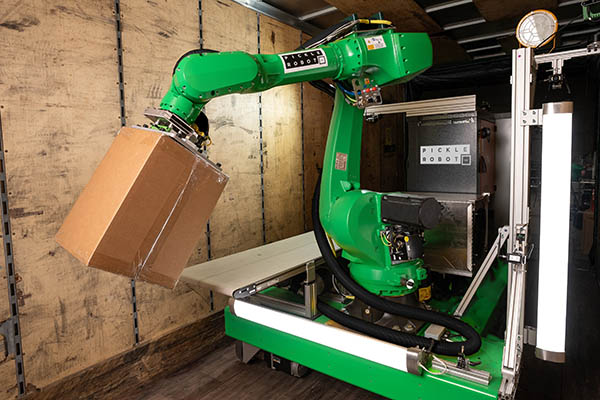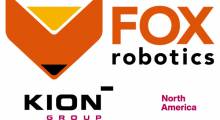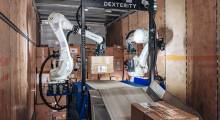Pickle Robot Co. knows that truck unloading is a major challenge for warehouse operators, from throughput and ergonomics to employee retention. It has applied artificial intelligence and robotics to solving the problem.
The Cambridge, Mass.-based company this week announced $26 million in Series A funding and that its robots are already unloading tens of thousands of packages from trucks in pilot deployments. Industry veterans also joined Pickle Robot's executive team.
AJ Meyer, founder and CEO of Pickle Robot, answered the following questions from Robotics 24/7:
How long have the pilot implementations been going? Do you expect a lot of feedback, or is this more to prove Pickle Robot's technology to customers?
Meyer: Pickle Robot Unload Systems have been installed at customer sites since July. These are early adopters who are using the robotic systems and supplying us with tremendous feedback and real-world operating conditions that have already helped us improve the system for them and for our next set of customers.
Much more than field testing, we are unloading live freight as it comes in and characterizing the system to a level where we can now quickly assess which of the many prospective customers that reach out to us are going to see fast ROI [return on investment].
What are some examples of refinements to your technology in the past few months?
Meyer: Overall performance has been improving monthly since we put the systems in the field. Rates have doubled, accuracy has improved, and customers have helped us refine the user experience for monitoring and managing the robots.
Since beginning field operations, we've gotten really focused on elements that are easy to underestimate in the lab, like uptime/availability, usability, and safety.
Will Pickle Robot be using its Series A funding to hire more people?
Meyer: Yes, we are actively hiring for a number of roles across the organization in areas such as software development, hardware development, product management, field services, and corporate development.
Truck unloading draws developer interest, requires strong focus
Other robotics companies, such as Boston Dynamics, Dextrous Robotics, Honeywell Intelligrated, Technica, and VisionNav, are pursuing truck unloading and palletizing. How are these good problems to solve with automation, and how is Pickle's offering unique?
Meyer: Truck unloading, especially floor-loaded trailers and containers, is one of the hardest jobs to hire and retain staff for in warehouses and distribution centers. National figures show that turnover is greater than 40% annually for general warehouse work, but our customers tell us that turnover for unloading floor-loaded trucks is well over 100%.
This work is dirty, dull, and physically demanding, yet receiving docks are the start of every process at distribution centers, so the work is critical. Customers have been living with a painful bottleneck in their dock operations for decades. It's only just now that technology has advanced all the way to a solution.

Some of the things that make the Pickle offering unique is our laser focus on solving this particular challenge. We have a company roadmap that includes mixed-case palletization and trailer loading, but today, we are laser-focused on unloading. We are totally committed to solving this for customers.
Secondly, we take a product approach. This means we are building a product that does one thing really well and works out of the box for a large set of customer requirements.
Our Unload Systems handle larger heavier packages like those common in the apparel supply chain. Our systems handle smaller, lighter packages like those commonly found in imported food containers, and our systems handle mixed packages in the same trailer.
Our systems can be deployed without needing integration with the operation's WMS [warehouse management system], and we expect the existing staff to be able to manage the systems without the necessity of advanced robot or software skills.
There is no such thing as a fully lights-out solution to truck unloading, and we've built our system to ensure the staff already working in the facilities where our systems are used, can quickly, easily, and safely interact with the robot when required to from time to time.
What are your next milestones toward commercialization, and when do you hope to achieve them?
Meyer: We anticipate making additional customer announcements in the spring, and we will be taking orders for Pickle Robot Unload Systems at ProMat in March for systems we will deploy throughout 2023.
If any of your readers are feeling a painful bottleneck dealing with floor loaded freight, we encourage them to get in touch now!
About the Author
Follow Robotics 24/7 on Linkedin
Article topics
Email Sign Up
















